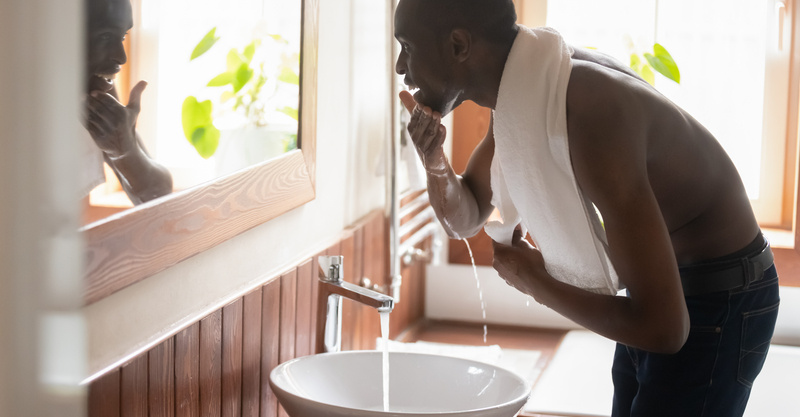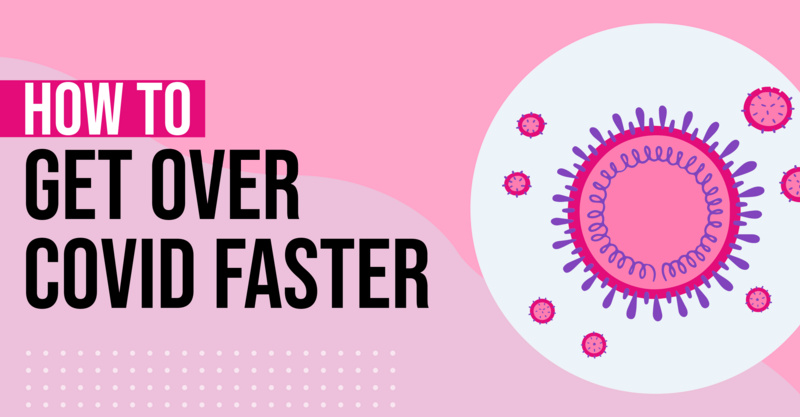Key Points
- As stay-at-home orders are extended or relaxed in various states, governors are tasked with balancing public health with economic stability. The increase in normal activities could potentially lead to a rise in COVID-19 cases due to increased person-to-person contact.
- State reopening will be a gradual process, with the extent of changes to daily routines depending on location, industry, and individual health risks. The White House recommends phased reopening based on coronavirus cases, testing, and hospital capacity, but these are guidelines and not mandatory.
- As states reopen, health experts warn of a potential increase in COVID-19 cases. Businesses are likely to operate with limited hours and services, and implement social distancing and disinfecting practices. Individuals must decide when and where to venture out, balancing the need to support local businesses with the need to slow the spread of the virus.
- Even as states reopen, there is still a risk of exposure to the virus. Precautions such as wearing a mask, maintaining social distancing, and frequent hand washing should still be observed. High-risk individuals are advised to consult with their primary care doctor before resuming normal activities.
- Healthcare services are adapting to the situation, with many offering telemedicine services. Despite the reopening, it is still important to take precautions against COVID-19, but individuals should not hesitate to seek necessary healthcare.
Just as many stay-at-home orders were set to expire, some states moved to extend them through May. However, others started talking about the possibility of relaxing shelter-in-place guidelines to allow some non-essential businesses, like malls and restaurants, to reopen. Governors across the country are tasked with balancing the health and safety of the people in your state with the stability of the local economy. This means making the call about when (and how much) to allow residents to start resuming normal activities. The issue is that an increase in “normal activities” means an increase in person-to-person contact, which we all know by now adds up to an increased risk of coronavirus (COVID-19).
No matter where you live, the difference in regulations from state to state is bound to cause some confusion. (Not sure about your state’s current policies? This guide from the New York Times breaks down every state’s approach to reopening, as well as the number of new coronavirus cases the state sees each day.) In this post, we’ll break down what it means for your state to start reopening, and how you can continue to protect your family’s health during this pandemic.
What reopening means for you
As much as we all long for some return to normalcy, for most states, reopening will only be a small, tentative step in that direction. The rollback of social distancing regulations will be gradual as state and local governments try to breathe life back into the economy without increasing the spread of COVID-19. How much these changes affect your daily routine will depend on a few things, such as where you live, what industry you work in, and whether you or anyone in your household is considered high-risk for severe illness from COVID-19.
Theoretically, your state opening back up should mean that it’s safe to stop quarantining, right? Unfortunately, the reality is a little more complicated. The White House recommends that states open back up in phases, depending on the number of coronavirus cases, how much testing is being done, and whether hospitals have the capacity to treat all the people that walk through their doors. The idea is that if states meet certain guidelines, they will be able to slowly reopen without causing an increase of coronavirus cases.
However, state governments aren’t required to follow these guidelines—they’re more like suggestions. Depending on where you live, your state may start letting businesses open to the public sooner or later than the White House recommendations allow. While non-essential businesses may start serving the public once again, coronavirus is still present in all 50 states. As your state starts reopening, and you finally have the option to get your nails done, work out at the gym, see a movie, or enjoy a summer day at a state park, the question remains—should you?
Staying safe as your state reopens
Health experts warn that while coronavirus is still circulating (which it is), opening states back up without proper precautions could cause case numbers to spiral upward. As businesses start opening in your state, many will do so with limited hours and services, as well as special social distancing and disinfecting practices in place. You’ll be faced with the decision of which business to start visiting again, and when. If you’re torn between doing your part to slow the spread of coronavirus and doing your part to support local businesses, you’re not alone.
As the country approaches summer vacation time, hopeful to enter a new, less-severe phase of the pandemic, there are a few things you should keep in mind. First, even if your state has decided it’s safe to reopen, there’s still a chance of being exposed to coronavirus and passing it on to others, who can then pass it on to others, and so on. Second, if you go out, you should still wear a cloth face mask and stay six feet away from other people to avoid catching or spreading COVID-19. Lastly, if you’re high-risk, you should talk to your primary care doctor to determine when it’s safe for you to start going out again. The White House reopening guidelines recommend that you keep sheltering in place, even if your state begins to reopen sooner than later. If anyone that you live with fits into this category, you should take special care to continue social distancing while you’re visiting any newly reopened businesses to avoid bringing the virus back home with you.
Ultimately, it’s up to you to weigh the options and decide the best choices for your specific situation. However, the CDC recommends taking the following precautions, even if your state starts allowing restaurants, movie theaters, gyms, and other non-essential businesses to reopen to the public:
- Wash your hands often with soap and water for at least 20 seconds, especially after you’ve visited a public place.
- Keep at least six feet between you and other people you encounter out in public.
- Wear a cloth face mask when you go out (here’s a breakdown of do-it-yourself cloth face coverings from the CDC).
- Cover your mouth and nose with a tissue when you sneeze when you’re in a private setting. Immediately throw your used tissue in the trash and wash your hands to prevent the spread of any germs.
- Clean and disinfect frequently-touched surfaces in your home every day.
Pro Tip: According to the CDC, most common disinfectants registered by the Environmental Protection Agency (EPA) will work on COVID-19.
Getting healthcare as your state reopens
It’s been a while since you’ve been able to go out in public without taking coronavirus into account. Maybe you’ve put off routine care appointments during the coronavirus outbreak. Though some doctors and urgent care clinics have stayed open to the public during the pandemic, others have been forced to close. Fortunately, a growing number of urgent care clinics and primary care doctors are offering telemedicine services, and booking a virtual visit has never been easier. An online appointment can also be the first step in figuring out whether you need to schedule an in-person visit down the line. If your doctor doesn’t offer telemedicine appointments, you can call them to see if they recommend scheduling an in-person visit and, if so, which safety measures you should follow when it’s time for you to come in.
As states across the country start to open back up, you should still take precautions to avoid spreading, or being exposed to, coronavirus. However, you shouldn’t be afraid to ask for the healthcare you need. If you have been dealing with symptoms or unanswered medical questions while you shelter in place, you can use the Solv app to book a same-day virtual appointment today and start getting the answers you need. Download now.
Frequently asked questions
What does it mean for a state to reopen during the COVID-19 pandemic?
A state reopening during the COVID-19 pandemic means that some non-essential businesses, like malls and restaurants, are allowed to reopen. The rollback of social distancing regulations is usually gradual. The extent to which these changes affect daily routines depends on factors such as location, industry, and whether anyone in a household is considered high-risk for severe illness from COVID-19.What guidelines are states following to decide when to reopen?
The White House recommends that states reopen in phases, depending on the number of coronavirus cases, how much testing is being done, and whether hospitals have the capacity to treat all incoming patients. However, these are only recommendations and states are not required to follow them.Is it safe to stop quarantining once my state reopens?
The safety of stopping quarantine once a state reopens is complex. While reopening theoretically suggests it's safe to resume normal activities, the reality is that coronavirus is still present. Therefore, even as states reopen, it's important to continue practicing safety measures like wearing a mask, maintaining social distance, and regularly washing hands.What precautions should I take as my state reopens?
Even as states reopen, it's recommended to continue washing hands often, keeping at least six feet distance from others in public, wearing a cloth face mask, covering mouth and nose when sneezing, and cleaning and disinfecting frequently-touched surfaces at home.How can I support local businesses while also preventing the spread of coronavirus?
As businesses reopen, they often do so with limited hours and services, as well as special social distancing and disinfecting practices in place. You can support them by visiting during these hours and following their safety measures. However, the decision of which businesses to visit and when should be made based on your comfort level and risk factors.What should I do if I'm considered high-risk for severe illness from COVID-19?
If you're considered high-risk, it's recommended to talk to your primary care doctor to determine when it's safe for you to start going out again. Even if your state begins to reopen, the White House reopening guidelines recommend that you continue to shelter in place.How can I get healthcare as my state reopens?
Many urgent care clinics and primary care doctors are offering telemedicine services. Booking a virtual visit can be a safe and effective way to receive healthcare. If your doctor doesn't offer telemedicine appointments, you can call them to see if they recommend scheduling an in-person visit and what safety measures you should follow.What should I do if I've been dealing with symptoms or unanswered medical questions while sheltering in place?
If you've been dealing with symptoms or unanswered medical questions while sheltering in place, you can use healthcare apps to book a same-day virtual appointment and start getting the answers you need.











